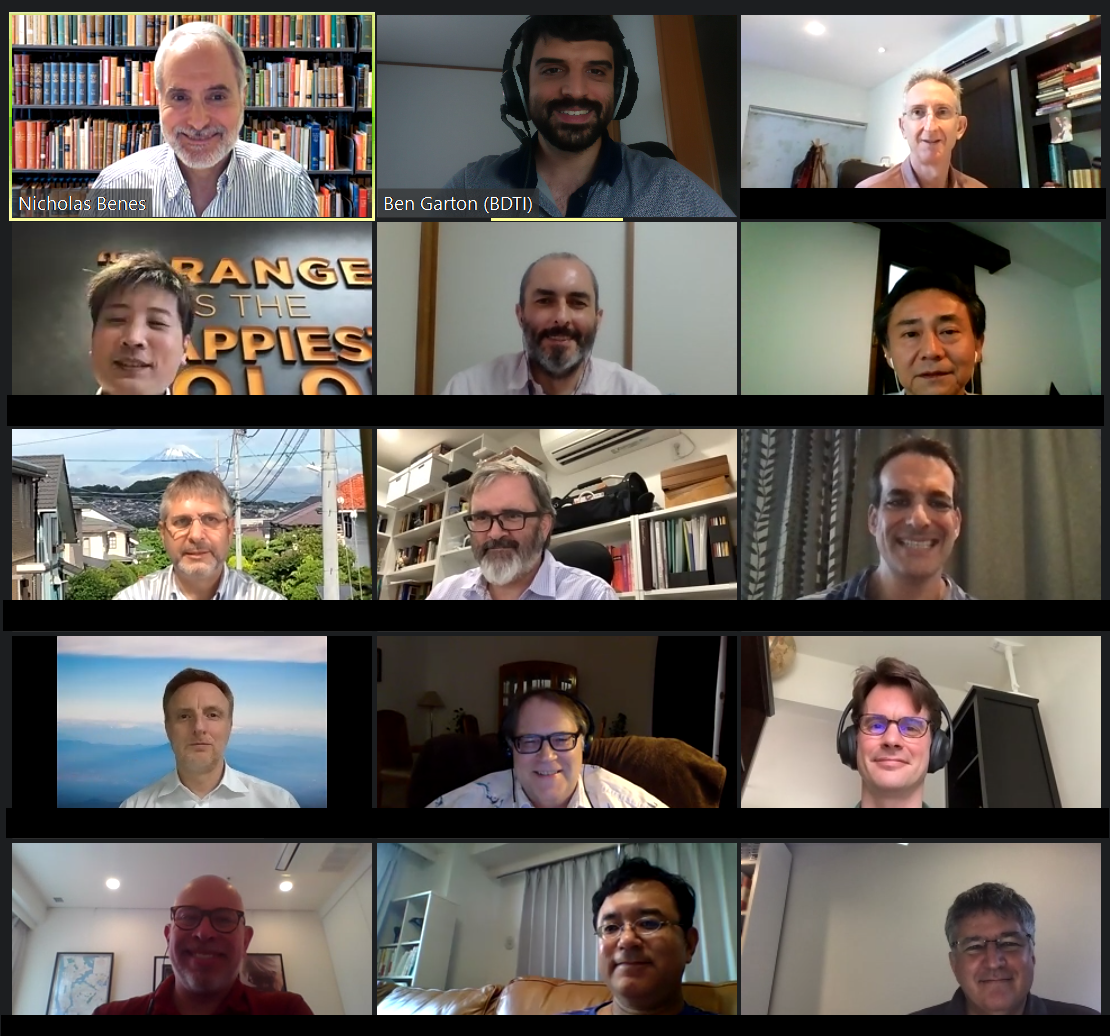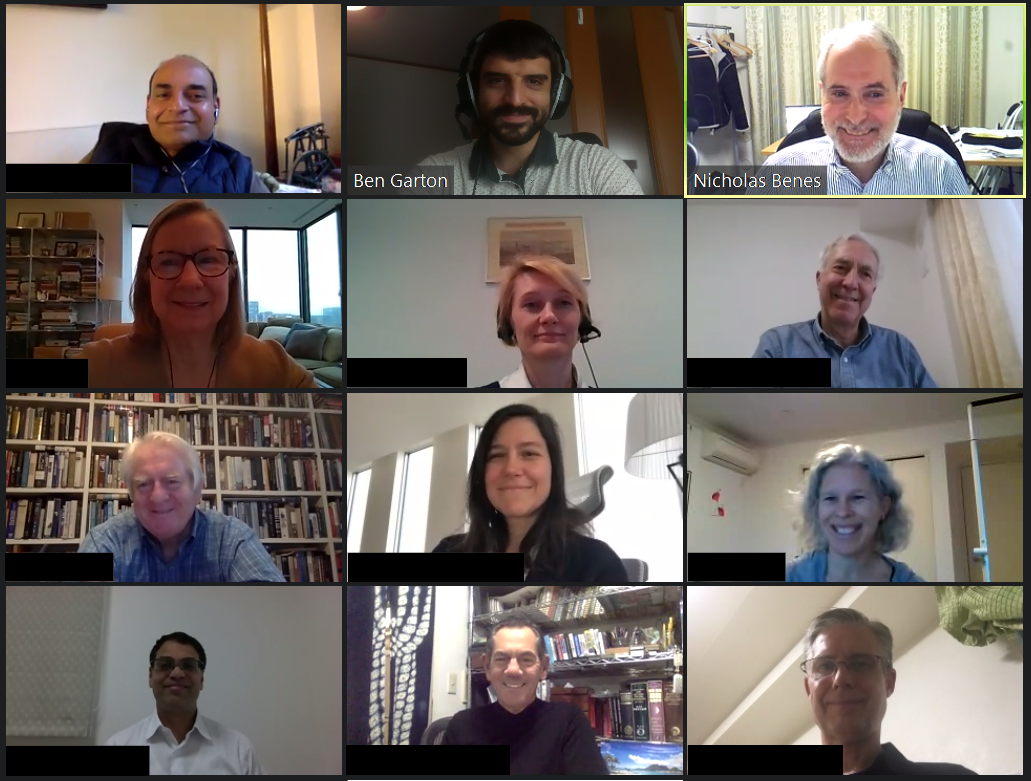May stock market continued directionless trading after an upturn at the beginning of the month. CG Top 20 stocks outperformed against both the Topix and JPX400 indices. Stock prices opened higher at the beginning of the month on the back of lower US interest rates led by lower-than-expected US employment data, but subsequently kept directionless […]
Category: Other News
The Need for Open and Frank Conversations at Board Level

The Board’s Responsibilities
Boards are responsible and held accountable for the decisions they are making. Hence, the quality of the decision-making process and the decisions themselves are fundamental to the work of boards, their organizations, and the investors. When board members are too polite with each other, they don’t have so-called healthy debates. Why do these debates improve the quality of decisions? Because they invite board members to share their professional opinions.
Without such debates, the board has neglected its mandate and responsibility towards the investors and the employees. At a personal level, an open and frank conversation among board members helps to create more buy-in and enhances the commitment of each member to the board decisions, as everyone has been heard.
Why is there no healthy debate in Japan?
Here are some reasons why we experience boards that are too polite. For one, the board might consist of ‘insiders’ only. This might lead to faster (superficial) consensus decision-making. However, that leads to biased and selective use of information together with a way of working to ‘not rock the boat’. A second reason is the lack of diversity. In Japan diversity is still closely linked to gender. But we need the diversity of thought, background, experience, education, etc.. Boards that lack this kind of diversity have a narrow perspective on topics as members see things the same way. This results in many blind spots. And thirdly, the required open and frank conversations in Japan are often happening in private settings outside of the boardroom, without the participation of every board member.
 High performing teams
High performing teams
As part of developing high performing team, healthy debating and constructive conflict management is a competency that can be coached. Before conducting such conversations, there needs to be a high level of personal trust.
February 9th “Director Boot Camp” Course Held by Video Conference! Next Course: April 7th, 2021!
On February 9th, still in the midst of the pandemic, BDTI held its English Director Boot Camp via Zoom. The day-long intensive course was attended by 10 highly-experienced and very interactive participants. The participants heard lectures about corporate governance by Nicholas Benes along with a guest lecture by Andrew Silberman of AMT, and exchanged experiences […]
METRICAL: CG Stock Performance (Japan): January 2021
January stock prices edged lower after surging in the middle of the month. CG Top 20 stocks underperformed against Topix and JPX400 during the 1-month period The stock market opened higher in January on the back of the stocks rally at the end of the previous month. After that, the market surged on the expectation […]
METRICAL:Post-COVID-19 Focuses on Family Companies
The environment surrounding our business is changing significantly in line with changes in social life due to the spread of the new corona virus infection. The biggest challenge for management is to adapt to these changes in the environment with a post-corona scenario in mind. We believe that one of the keys to adapting to […]
July 8th “Director Boot Camp” Course Held by Video Conference! Next Course: September 3rd, 2020!

On July 3rd, in the midst of the Corona virus pandemic, BDTI held its English Director Boot Camp via a teleconference arrangement. The day-long intensive course was attended by 12 highly-experienced participants, including one Chief Digital Officer, one Consultant, one Managing Director and senior executives. The participants heard lectures about corporate governance by Nicholas Benes, and Andrew Silberman of AMT, and exchanged experiences and opinions. Despite the IT challenges everything went smoothly, with breaks for everyone to stretch their legs or review materials in more depth.
We are planning to hold the next course on Thursday, September 3, 2020. Sign up early! Please see a description of our director training course here or click the button below for further information.
Redesigning Corporations: Incentives Matter

By Nicholas Benes
(also published in the Harvard Law School Forum on Corporate Governance)
The Birth of the Corporation: Public Interest Organizations
The evolution of the modern corporation is the fascinating story of a series of self-serving legal and societal mutations over hundreds of years, which have morphed the original concept and endowed corporations with freedom of activity, rights, and limitations on liability that would shock their original “inventors”.
As we all know, for many years most corporations were established by way of an exceptional “charter” by a sovereign, granted only in specific cases where: (a) large amounts of capital were needed (b) to conduct investments and activities that served public or national interests and had good profit potential, but (c) where the risks were so large that few parties would invest if their risk were not shared with many others and/or limited to the amount of money they invested.
In the 1600s and 1700s, the activities that sovereign nations felt met those requirements were the exploration of foreign lands on the other side of the globe, the creation and administration of colonies there, and conducting lucrative trade on long (and dangerous) sea routes to and from those colonies. Thus, the most well-known early corporations include organizations such as the British East India Company (the original “too-big-to-fail company), The Dutch East India Company, the Hudson’s Bay Company, and companies to construct the Erie Canal.
As the industrial revolution gathered steam, the need to raise large amounts of capital increased many times over. Driven by this need, the immense benefits of corporate status for raising financing became increasingly obvious and desirable to investors and managers: easy stock transferability vs. rewriting partnership agreements, separation of ownership from control, legal personhood that simplified large transactions such as loans and large investments (a single counterparty to deal with and sue), and the possibility of receiving a charter that conferred “limited liability” on shareholders. All of these made it much easier to raise funds in large amounts than any other form of business organization.
GoToData by BDTI: Japanese Disclosure, by All listed Firms, Now Easily Accessible in English!
Why wade through 100+ pages of unusable PDF-formatted Japanese jungle, when you can jump directly to the parts you want, read them in English, and quickly cut and paste both text and tables you want to analyze and compare? Why not save 70% of your time and conveniently review the official source documents submitted by all 3,600+ Japanese listed companies? Click on the center of the image below to view in full screen “flipbook” mode, and contact us at info@bdti.or.jp if you are interested to know more. Qualifying parties may receive demonstrations and trial accounts.
Ready or not, Japanese disclosure has now entered the age of machine-readable digital data! The dream that I presented to Japanese lawmakers in February of 2014 [1] can now be realized: a world where a Corporate Governance Code requires detailed disclosure of the inner workings of companies’ governance black boxes, and that information is seamlessly available to all investors, thus making it possible for them to do the analysis they must do to be good “stewards”. As a result, the Stewardship Code will be able to function in reality, not just in theory.
[1] 2月6日に自民党の日本経済再生本部の金融調査会に呼ばれて、コードの概念、政策としての位置付け、入れるべき内容の例を「日本経済の復活のため、コーポレート・ガバナンス・コードの早期制定を」というプレゼン資料を使って説明した。その後、議員らにさまざまなアドバイスと提供させていただいた。
April 20th “Director Boot Camp” Course Held by Video Conference! Next Course: July 8th, 2020!

On April 20th, in the midst of the Corona virus pandemic, BDTI held its English Director Boot Camp via a teleconference arrangement. The day-long intensive course was attended by 10 highly-experienced participants, including two Ambassadors, one General Counsel, and senior executives. The participants heard lectures about corporate governance by Nicholas Benes, and Andrew Silberman of AMT, and exchanged experiences and opinions. Despite the IT challenges everything went smoothly, with breaks for everyone to stretch their legs or review materials in more depth.
We are planning to hold the next course on Wednesday, July 8, 2020. Sign up early! Please see a description of our director training course here or click the button below for further information.
Japan’s FSA is Planning to Postpone the Deadline for Submission Annual Report for March-end (Accounting Term) Companies Until the End of September.
According to the FSA on the 10th, the Financial Services Agency will postpone the deadline for submitting annual reports for the companies closing in March for three months, until the end of September, considering the effects of the new corona virus. The coucil composed of the Japan Institute of Certified Public Accountants, Tokyo Stock Exchange and Keidanren announced on the same day. It is expected to be officially decided next week. Financial Services Agency has begun to consider postponing the deadline for submitting annual reports required for listed companies, including the reporting of companies as of end of March and quarterly reports of companies as of end of December last year.

